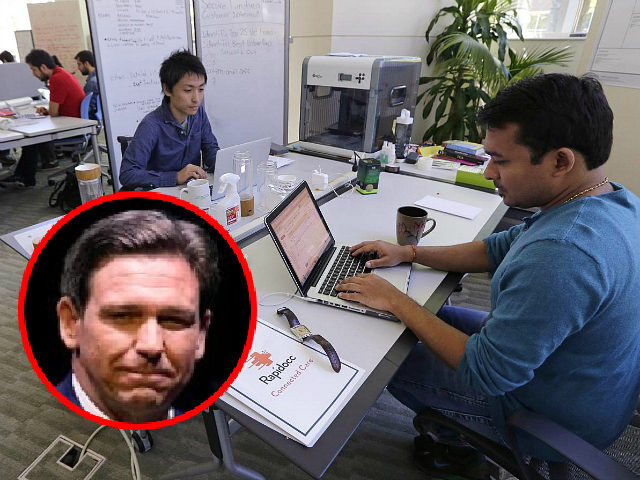Florida Gov. Ron DeSantis denounced Congress’s H-1B visa program for undercutting white-collar wages and displacing American graduates.
In a fast-paced August 14 interview with CNBC, DeSantis was asked:
You get a lot of questions about immigration, particularly at the border. I know you’ve covered that extensively in an interview recently with my colleague … at MSNBC. So I’ll ask about H-1B visas. Would you support allowing more H-1B visa immigration to the United States? I’m sure a lot of counties, say like rural Florida. would love to have a qualified doctor, no matter where that doctor is from.
DeSantis answered:
Yeah, but the problem is the way that has been implemented. They will bring in people — in technology — from other countries who work for lower rates than what Americans worked for. And so I don’t support undercutting American wages, and the H-1B program has been used to do that.
I used to kind of when people would say, ‘Hey, why not just have people that are credentialed?’ And I’m like, “Yeah, yeah, why not? ” But the way it’s been operated, I think, has lowered wages for Americans and that’s what you don’t want.
If it’s an addition for the economy that benefits the American people, that’s one thing. But if it’s displacing an American worker, that’s not good.
DeSantis’s new statement may be intended to shore up his sagging poll numbers among GOP voters with college degrees.
In 2020, deputies for then-President Donald Trump processed several rules to protect Americans from H-1B replacements, but those protections were wiped away by President Joe Biden.
In 2021, federal researchers at the Department of Labor concluded the H-1B program allows employers to hire underpaid visa workers instead of Americans. The underpayment adds up to roughly $150 billion over 10 years, compared to the market wages for American graduates, said the report. Other reports show the program displaces American graduates.
The artificially low wage means the government is “subsidizing the employers at the expense of the [American] workers,” said Ron Hira, a H-1B expert at Howard University.
The federal government also allows employers to keep roughly 600,000 H-1Bs workers in the United States, alongside roughly 1.5 million additional visa workers imported via the L-1, J-1, OPT, and other programs.
DeSantis’s statement will likely prompt much criticism from groups and individuals that support the program. In 2021, hired researchers claimed that Trump’s temporary curbs on the H-1B inflow in 2020 chopped $100 billion from the Wall Street value of U.S. companies.

COMMENTS
Please let us know if you're having issues with commenting.